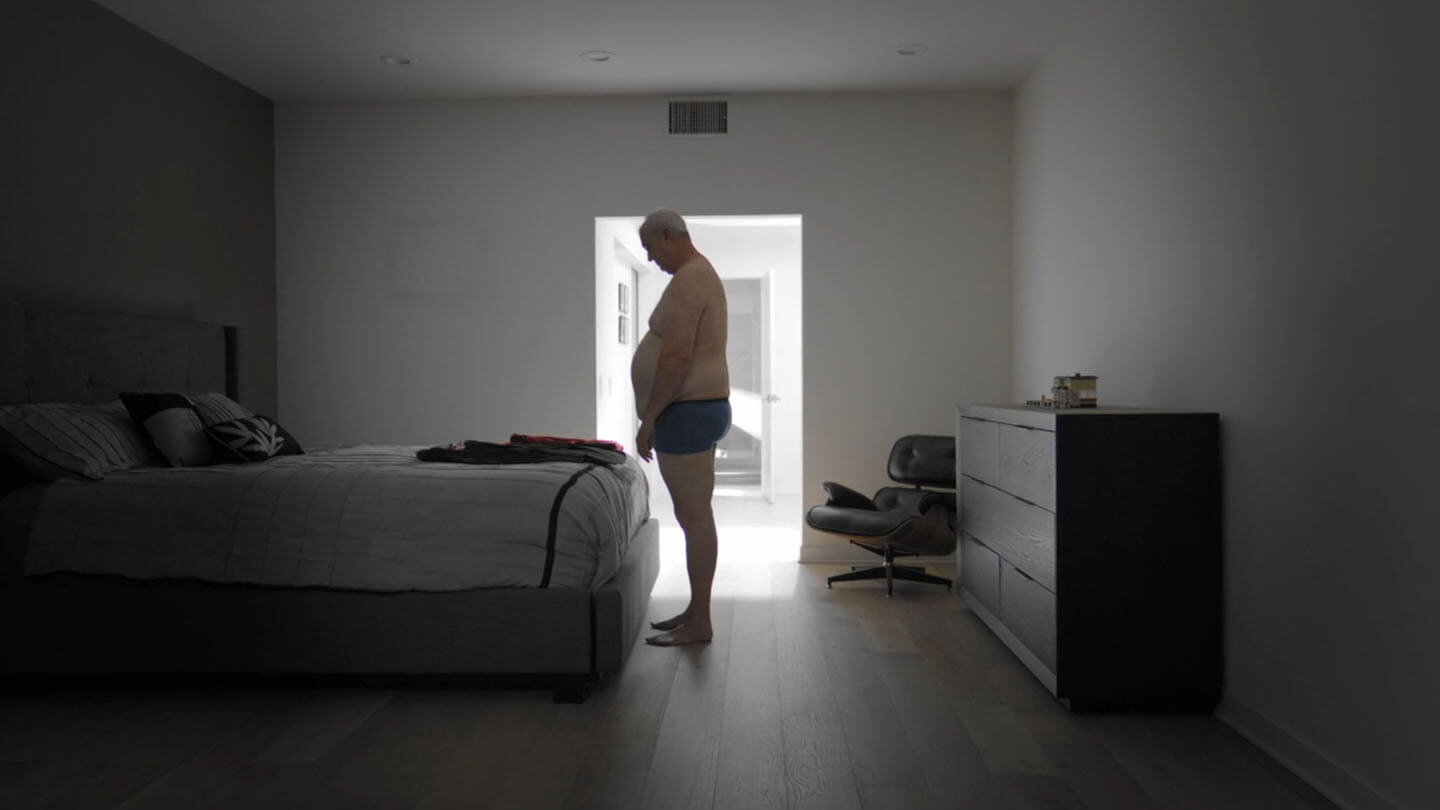James Dubbeldam’s LIFE Happens chronicles four key moments in a man’s life as a sum of its worth. Eight minutes long, the film is wordless in the present, weighed down into introspective silence. This introspection requires a fair amount of vulnerability and the concomitant risk of mortification, but then, delving into memory offers its own brand of pain.
The most striking part of the film is its opening as the soundtrack immediately grabs the viewer’s attention. The desperately bleak greyscale—made so through set design rather than the camera or post-production—is next on the order of things. An old man, Martin (Jeffrey Hurst) wakes up in bed. His position and movement, though perhaps too minimal to count as evidence, give the impression of rigidity and method. When he stands in front of his conspicuously sparse wardrobe, it is as if the four outfits are delivering his final judgment. It is exactly that.
Each outfit takes Martin to a significant day in his life. Wedding, childbirth, daughter’s childhood, and finally, his death. His life, a mixed bag as anyone else’s, is presented to him in these four outfits. The memories are presented in the form of home videos, with the aspect ratio and visual grain of camcorders, and a yellow filter to top it off. Each time he fails his family, a loved one’s voice tunes out to the sound of the work he prioritizes. Cynthia’s (Bita Paige) face registers despair as she navigates parenting alone, Martin unavailable. His daughter (Nathalie Cuzin) looks crestfallen when he leaves her mid-conversation. The dilution of emotion seems to have a chronology to it; the daughter inherited the mother’s disappointment through the years.
In his purgatory present, Martin contends with the sheer enormity and depth of his loneliness. Alone, he must face the truth of his life. Each time he undresses and redresses, his nakedness evinces a tired body. Though he is alone, he is on display. For if he must put himself through these steps, it must indicate the existence of an arbiter, however disembodied and invisible. If not, he is still subject to his own judgment and thus, he is his own scrutineer.
LIFE Happens is a bleak film, its protagonist subject to an immovable gaze. Indeed, the closing leaves the viewer feeling the absence of an actual verdict, only an account taking of a thoughtless life. Martin’s purgatory is an endless vista of introspecting his selfishness, the outcome unchangeable.
LIFE Happens: Taking Account at the End of It All
-
Direction
-
Cinematography
-
Screenplay
-
Editing
-
Music
